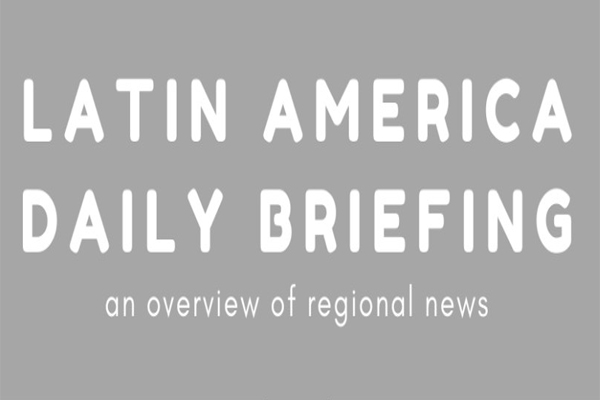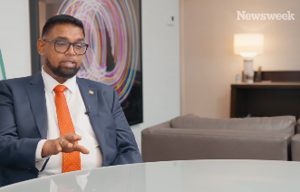
El Salvador will commemorate victims of the country’s long armed conflict on Jan. 16, the 30th anniversary of history peace accords that ended fighting. The new focus, passed by President Nayib Bukele’s allies in the National Assembly, yesterday, is aimed at discrediting the U.N.-backed peace agreement itself, which Bukele has characterized as a “farce.” (Deutsche Welle)
News Briefs
More El Salvador
- El Salvador’s Constitutional Chamber ordered the re-opening of an investigation into the 1989 massacre of six Jesuit priests last week, a path to justice in the emblematic human rights crime. (See last Thursday’s briefs.) But leaders at the the University of Central America (UCA), where the crime was committed, expressed concern about the judicial process being followed, and the potential political exploitation of the case. (El Salvador Perspectives)
- One of El Salvador’s inactive volcanoes will provide enough geothermal energy to power the Bitcoin City project, according to President Nayib Bukele. (Cointelegraph)
Regional
- Coronavirus cases are surging across Latin America, led by Argentina, but high vaccination rates appear to be preventing a more dramatic health crisis, reports the Guardian.
- Nonetheless, the high rate of contagion will create significant disruptions in coming weeks, according to the Latin America Risk Report.
Haiti
- Jimmy “Barbecue” Chérizier, a controversial former police officer-turned-gang leader, stands out as a key broker in Haiti’s current power struggle, reports InSight Crime in a report from last month. “For some, he’s a Robin-Hood figure giving voice and support to those most marginalized and neglected by the national government. For others, he’s a former police officer implicated in one of the worst massacres to hit the country, who has since grown into the nation’s foremost gang leader.”
Colombia
- At least 27 people died in fighting between armed Colombian groups on Jan. 2, in Arauca, a rural region in eastern Colombia on the border with Venezuela, reports France 24. The battle was part of a broader escalation of hostilities between Colombia’s ELN guerrillas and the dissident 10th Front of the ex-FARC Mafia, reports InSight Crime.
Regional Relations
- Colombia’s foreign minister said the country’s consul in Haiti has received threats after trying to provide humanitarian assistance to 18 former Colombia soldiers who were arrested last year for allegedly participating in the assassination of Haitian President Jovenel Moïse, reports the Associated Press.
Colombia
- Colombian researchers are redoing ornithologist Frank Chapman’s legendary bird survey — a hundred years after the U.S. scientist studied Colombia’s feathered populations. But this project will not snatch birds and whisk them to a museum abroad — as Chapman’s team did, reports Nature. Instead specimens will stay in Colombia, and scientists will engage with local communities during their expeditions.
- In northeastern Colombia, poached baby sloths are sold to tourists as pets — National Geographic delves into the world of wildlife traffickers in the area.
Bolivia
- Growing evidence shows that mercury used for small-scale gold mining in Bolivia is causing illnesses in poor communities, reports the Guardian. The uncontrolled disposal of mercury waste creates toxic flows in Bolivia’s river systems.
Cuba
- The Cuban approach to climate adaptation and mitigation offers an alternative to the globally dominant paradigms based on the private sector or public-private partnerships, according to Jacobin. Cuba’s Tarea Vida policy has increasing relevance to tourism-dependent Caribbean small island developing states, and others in the Global South.
Argentina
- Argentina is facing a historic heat wave with temperatures soaring above 40 degrees Celsius, making the country for a while the hottest place on the planet, reports Reuters.
Literary Corner
- Peruvian writer Mario Vargas Llosa is known for his right-wing political stances in the region — a marked contrast, for many readers, with the rich voice that comes through in his novels. His latest ouvre is no exception, writes Nick Burns in Americas Quarterly. Hard Times, focuses on the U.S. backed coup against Guatemalan President Jacobo Arbenz in 1954, which he said “held up the continent’s democratization for decades at the cost of thousands of lives.”
Latin America Daily Briefing —
http://latinamericadailybriefing.blogspot.com












